When my daughter asked why I was putting a shirt over my swimsuit, I told her the truth: “Because men like to control women’s bodies.”
The summer, rife with lockdowns, drew to a close, and as September began, we went shopping for Forat’s first day of first grade: a unicorn water bottle, a notebook, a pencil case. In the West Bank, the Ministry of Education postponed the start of the school year by a month, to September 6, to try to prepare for an impossible program: remote learning, although students don’t have adequate computer access and teachers don’t have adequate training, combined with socially-distanced classroom attendance, although the number of children in each class can reach 40. In the government schools, students up to fourth grade are to attend school three days per week in classes split in half, and plans for the older students have yet to be finalized. Coronavirus infection rates are high. Every day, the authorities report about 450 new cases in the West Bank, not including east Jerusalem, and about 150 in the Gaza Strip.
Our family is privileged. Forat’s private school is small, so she is supposed to go to school all day, every day – until the next general closure.
Two days before the school year began, we prepared a fun weekend for Forat and her three-year-old brother Adam, within the limits of the pandemic. I inflated the little pool in the private garden of our apartment and put on a bathing suit. As I walked out the door with the children, my partner Osama stopped me.
“You’re going outside like that?” he asked.
“I thought that in our garden, it’s OK,” I replied. I was wearing a bikini. Not the daring kind that twenty-year-olds wear, but it was a two-piece swimsuit.
“You have to decide how much you want to challenge them,” Osama said, referring to the neighbors in our building or maybe in our neighborhood in general.
I decided that I didn’t really feel like challenging them. I wanted to invite the children from the apartment upstairs, and their mother is religious. She has always been very tolerant of me, and I didn’t want to make her feel uncomfortable.
“Ima, why are you changing your clothing?” Forat asked.
“Because here in Ramallah, as in many places in the world, men like to control women’s bodies,” I answered.
“What does control mean?”
“It’s when someone forces you to do something you don’t want to do, because they are stronger than you. Like when Menace the Cat doesn’t let the other cats drink water,” I said referring to the aggressive cat that had settled in our garden and terrorized her rivals. “Or when I get angry, pick you up off the ground and take you to your room. That’s not OK, right?”
“Right,” Forat said.
“I can pick you up, because I’m stronger than you, but it’s not nice. And in most societies, men have more power than women, and sometimes they use it to tell women what to wear.”
“Do they also pick up women off the ground?” Forat asked.
“Not necessarily, but they do other things. Like, for example, they pay women less money than men, for the same job.”
“Do I also have to wear a T-shirt and shorts?” Forat asked.
“No, sweetheart. Little girls can wear what they want. And when you grow up, you’ll decide how and when to resist when men try to control you.”
Our neighbor Heba sent her two kids downstairs, and we all jumped into the pool. She watched us from her balcony and laughed as the children almost drowned me in a splashing attack. Her two-year-old daughter called me “Ima”, mother in Hebrew, a habit she picked up from listening to Forat and Adam.
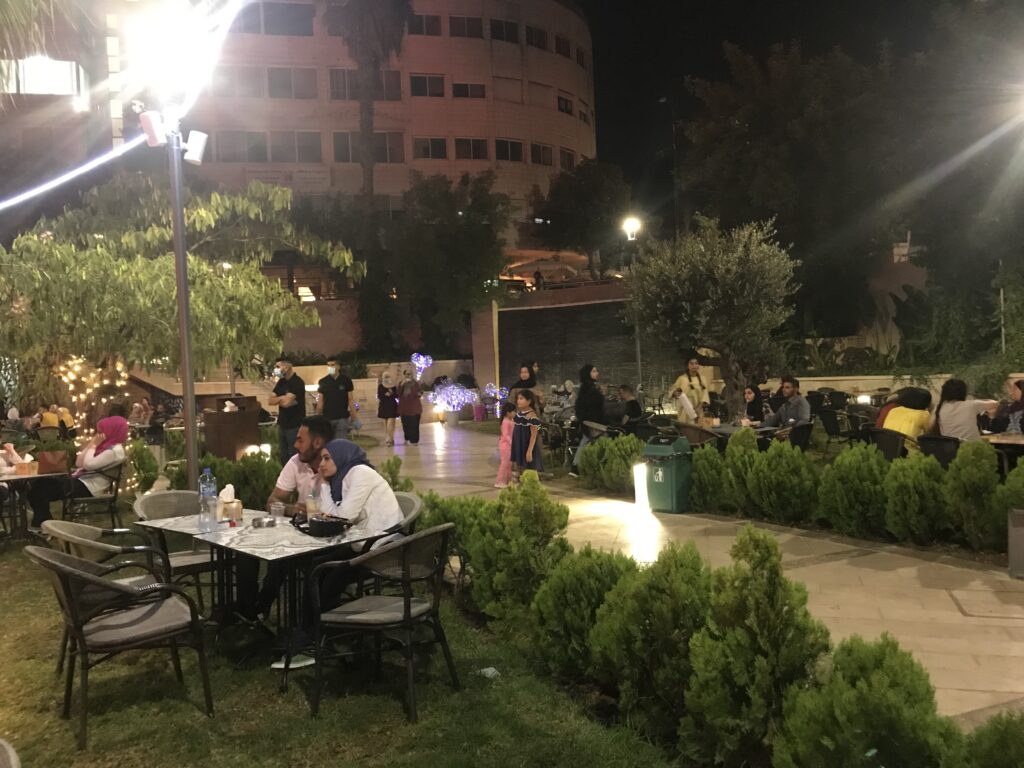
In the evening, Osama and I took the children to Muntaza Ramallah, a public garden with an outdoor restaurant in the huge plaza behind Ramallah’s City Hall. Guards checked our temperature at the entrance and made sure the adults wore masks, but inside families sat at tables, drinking fresh juice or beer and letting their masks slip down to their chins. The children ran around the huge fountain in the center and begged us to buy them balloons. When we refused, Forat, ever-confident, walked up to the balloon seller and tried to persuade him to give her a balloon for free.
At 8 pm the bell of the big clock on the City Hall building rang, and the water show began. The song, “Wein a Ramallah” (“Where to? To Ramallah”) played over the loudspeakers, and water jets began dancing to the music, with colored lights illuminating each stream. People gathered around the fountain and filmed the show on their cell phones.
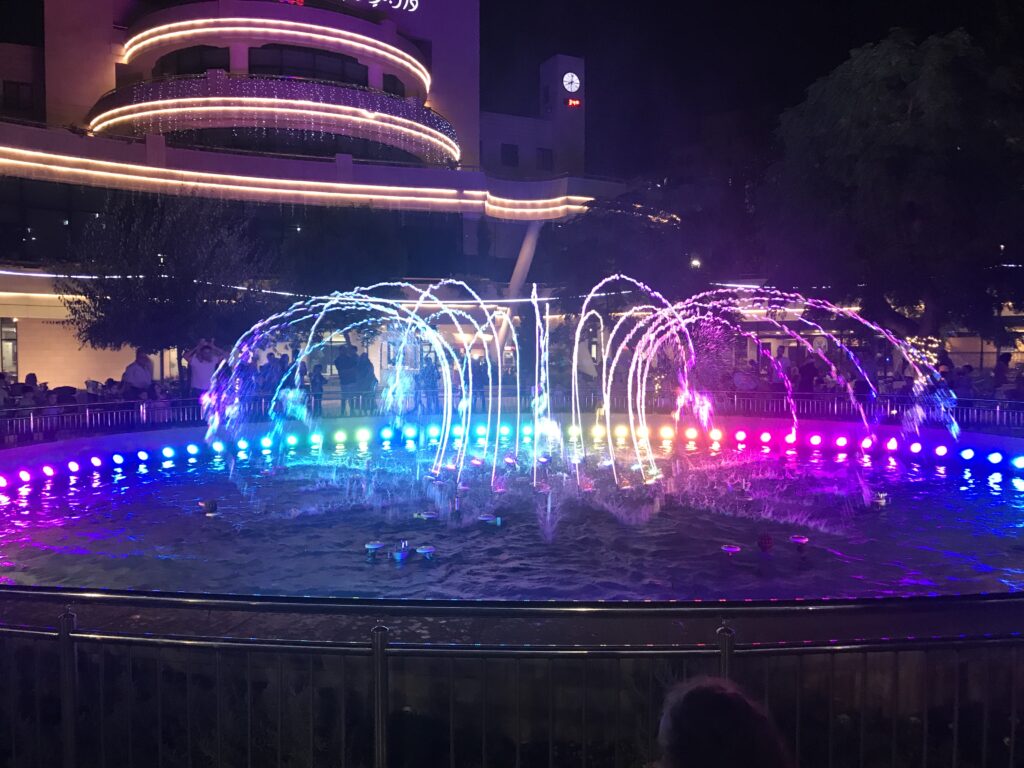
“I didn’t think we would come back here for a long time,” Osama said to me. Ramallah, like most cities in the world, is going through a hard time. Its economy depends on government jobs, but the Palestinian Authority’s budget has been decimated, after it stopped accepting tax moneys from Israel in June, in response to Israeli annexation plans, and due to a decline in donations from foreign countries. Palestinian civil servants received only half their salaries for June and July, and the expectation is that August will be no different. Private sector workers and businesses people have been hit hard by the pandemic, and the government is not compensating them. The Palestinian economy is expected to shrink by 14 percent this year. I don’t know how people will survive financially.
But Ramallah has a reputation as a bubble. For years, some of its residents have absorbed themselves in culture, nightlife and challenging conservative ways of life, all in the midst of a violent military occupation. Now a deadly pandemic and economic ruin are competing with the occupation to dampen the party.
The fountain’s center water jet shot up to a height of forty meters, and the crown laughed and clapped.
There, in the municipal garden, I caught a glimpse of the Ramallah I hadn’t seen in a while: a city that I have grown to appreciate, a city that confuses me, a city that insists on celebrating, amidst the suffering around it.
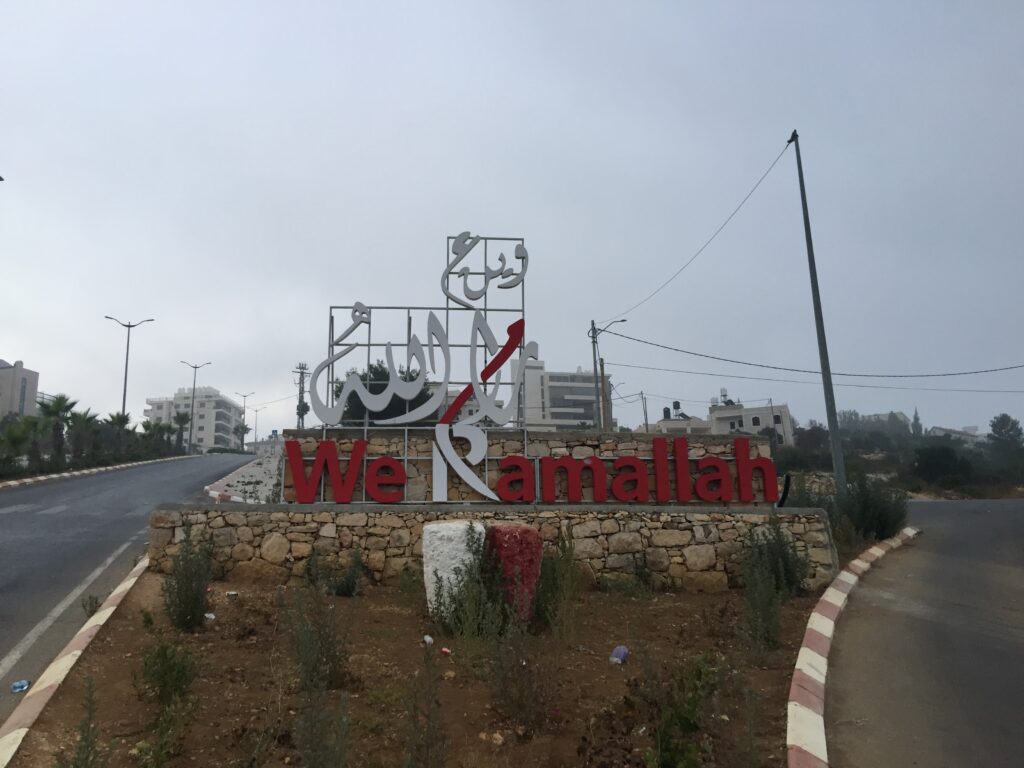
The song played over the loudspeaker, and our children danced: “Wein, a bab Allah.” Where to? Where ever fortune takes me.
This post was also published at haaretz.com on September 10, 2020:
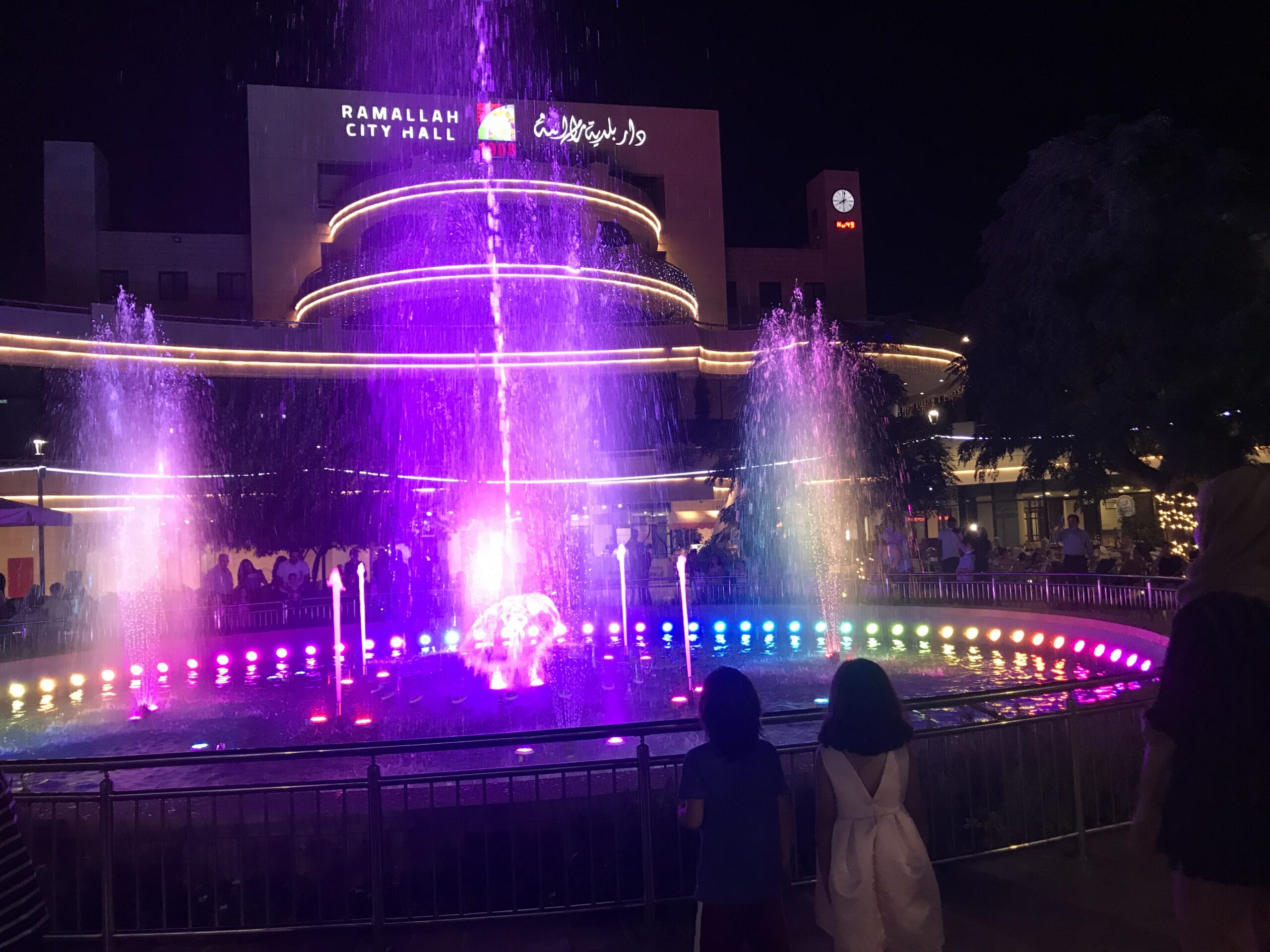

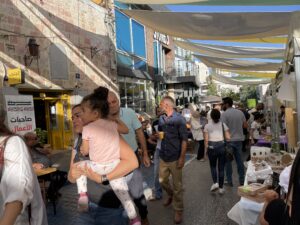
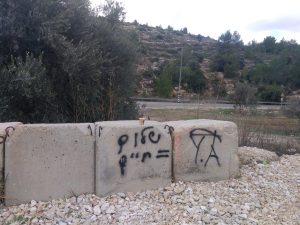
nice
אל תלמדי את ביתך חצאי אמיתות. מקבלות פחות כסף על אותה עבודה – כיוון שמדובר בפחות שעות.
אי אפשר להחזיק את המקל משני הקצוות. או שאת אישה חזקה שמקבלת את החלטותיה (וביניהן – להביא ילדים) או שאת עבד. לא גם וגם. אף אחד לא מכריח אותך להביא ילדים, אף אחד לא דורש שתצטרפי לאיזה מפעל-לאומי-לאומני ליישב את הארץ ולהשריץ ילדים,ואף אחד ולא צריך לשלם על ילדייך.
עצם העובדה שלבשת חולצה מעל הבגד – ים בעצם המשכת לשדר מסר לגברים להכתיב לך כיצד להתנהג .
אני חושב שלימדת את פורת ההיפך ממה שהתכוונת .